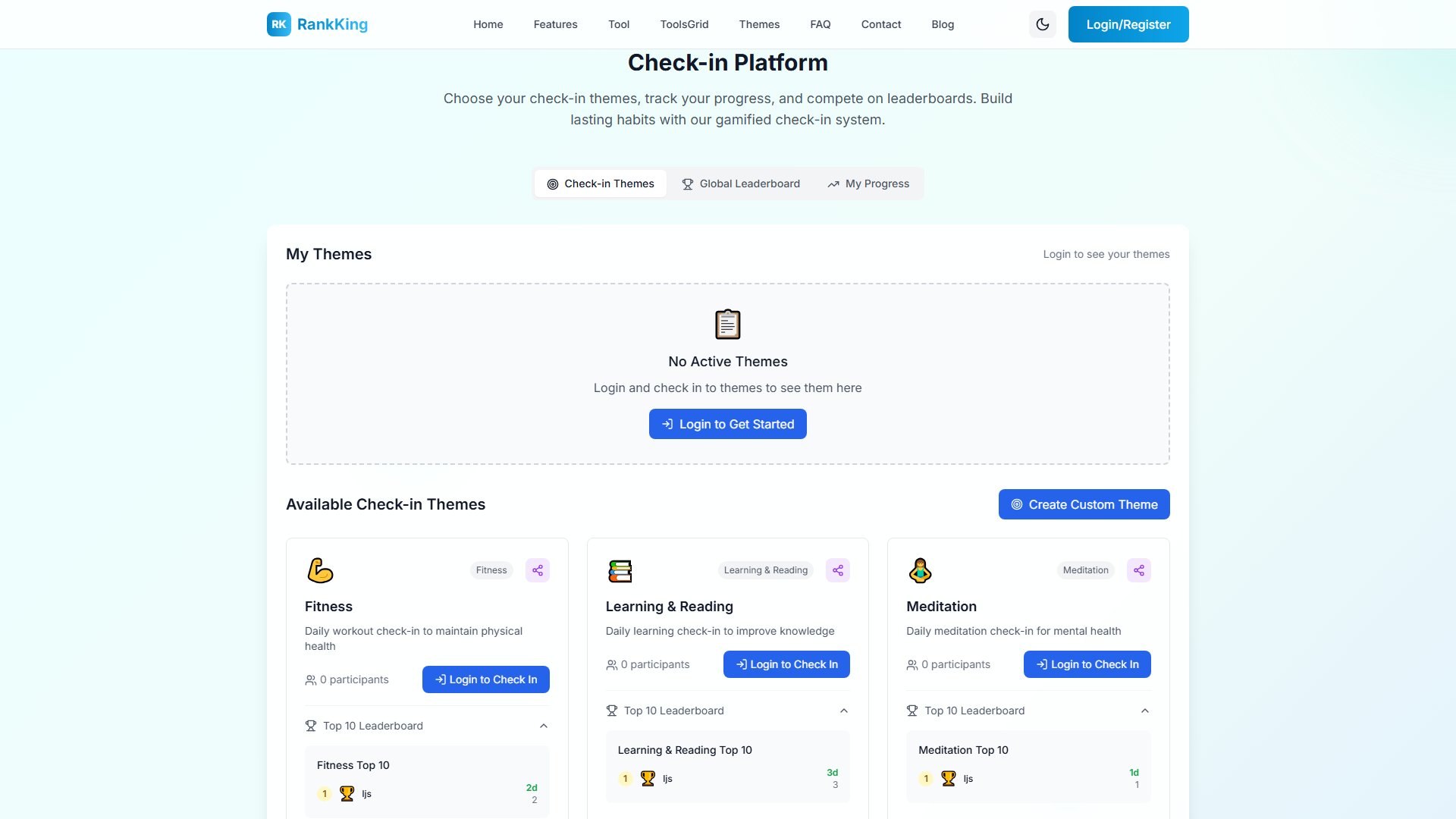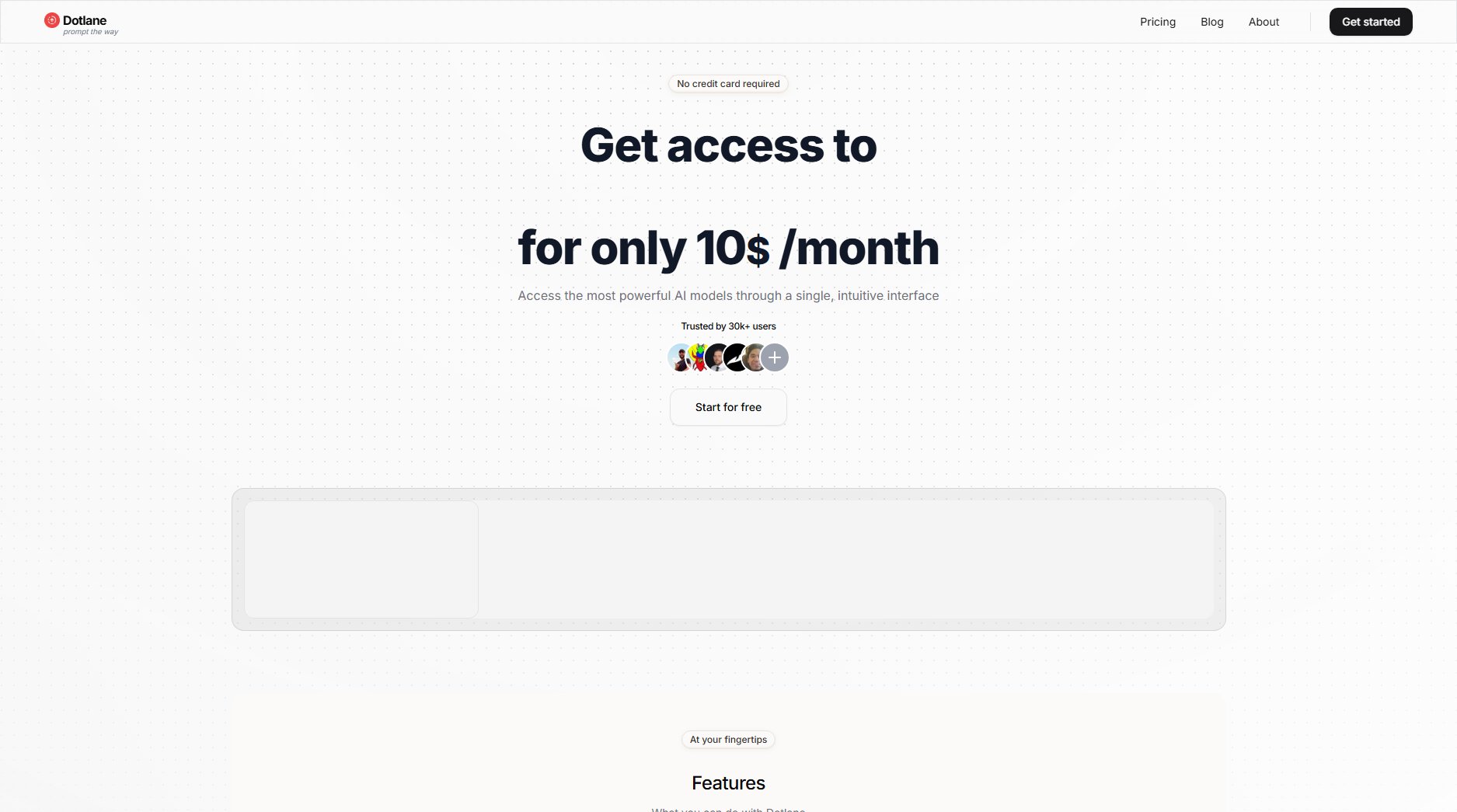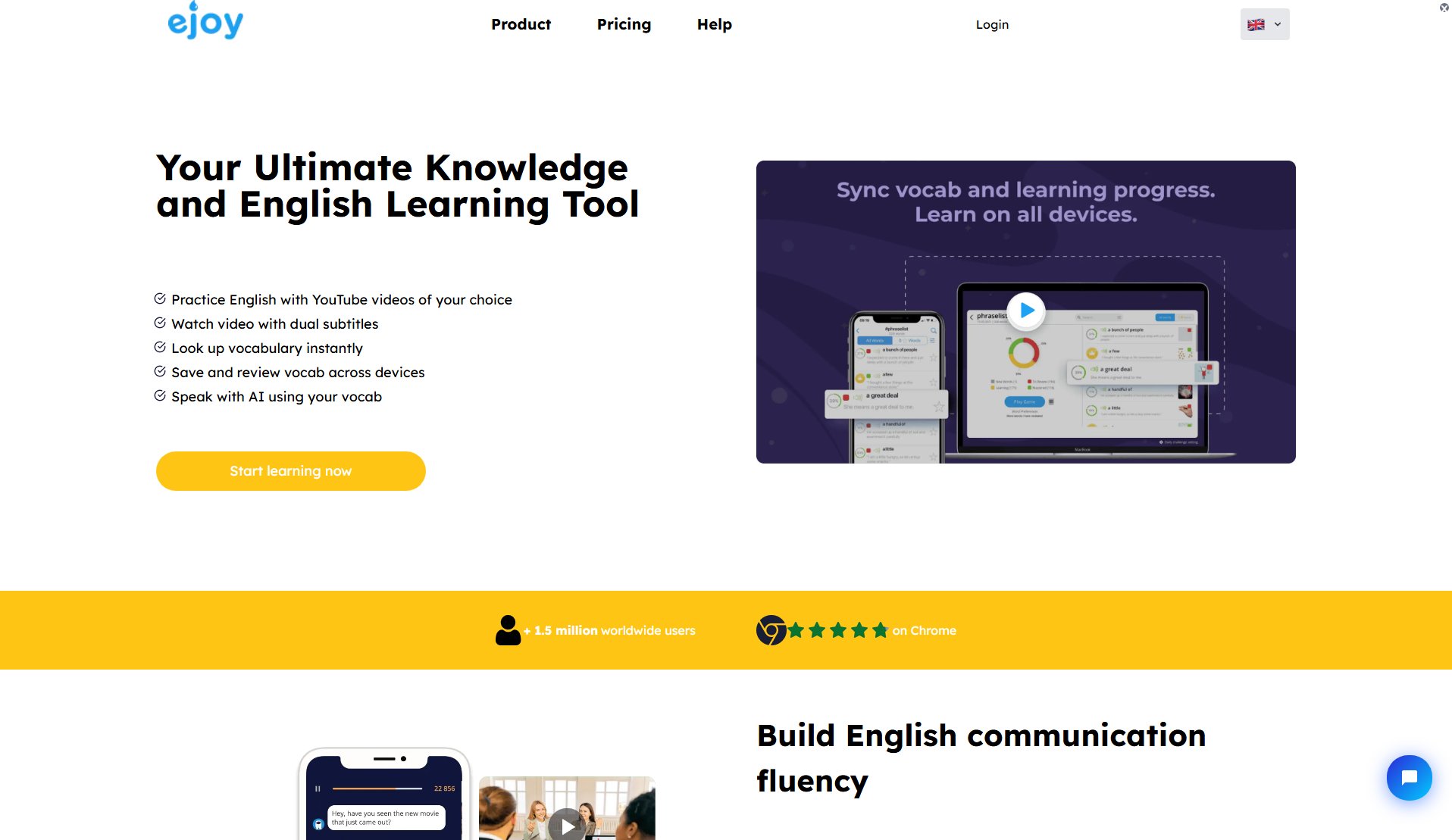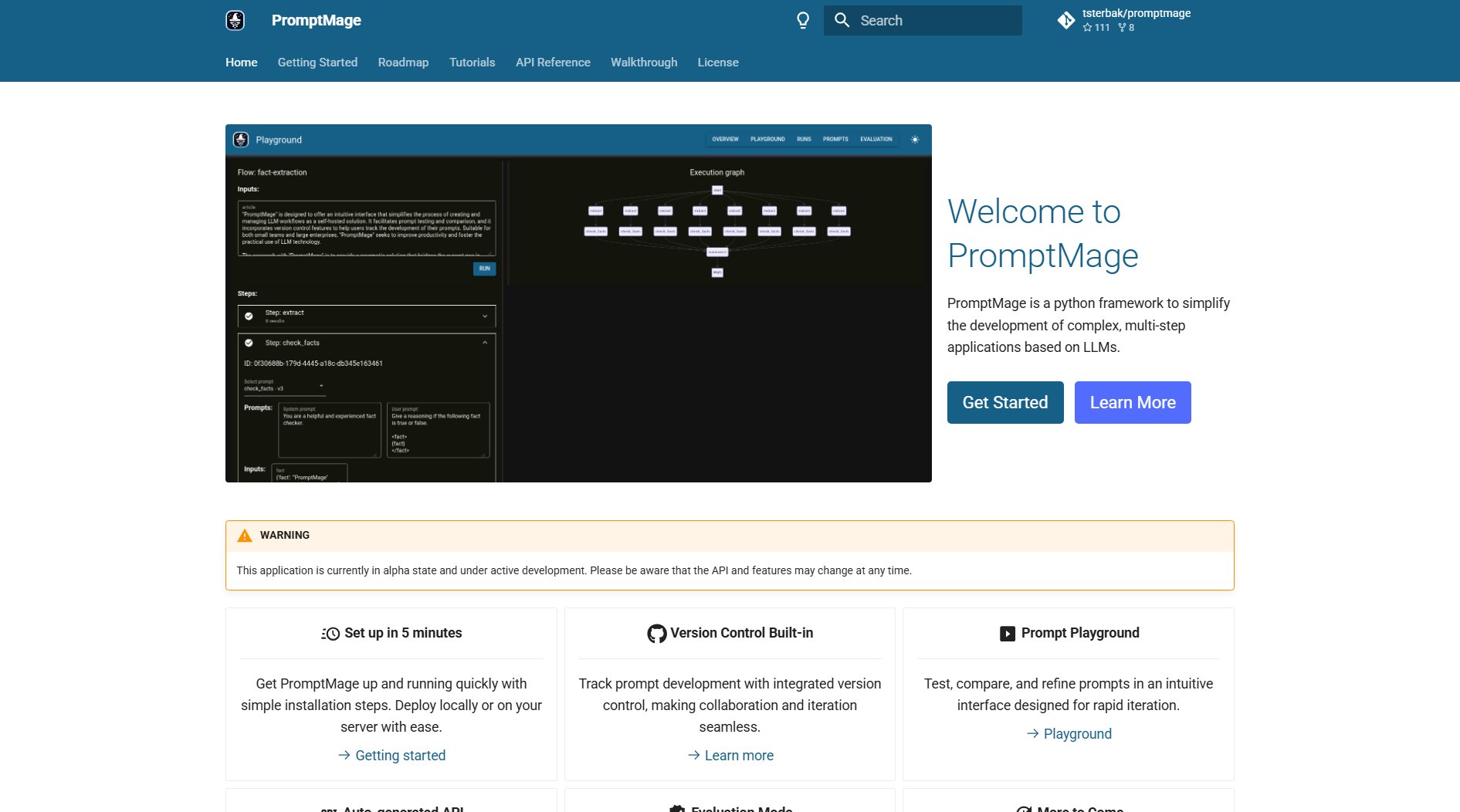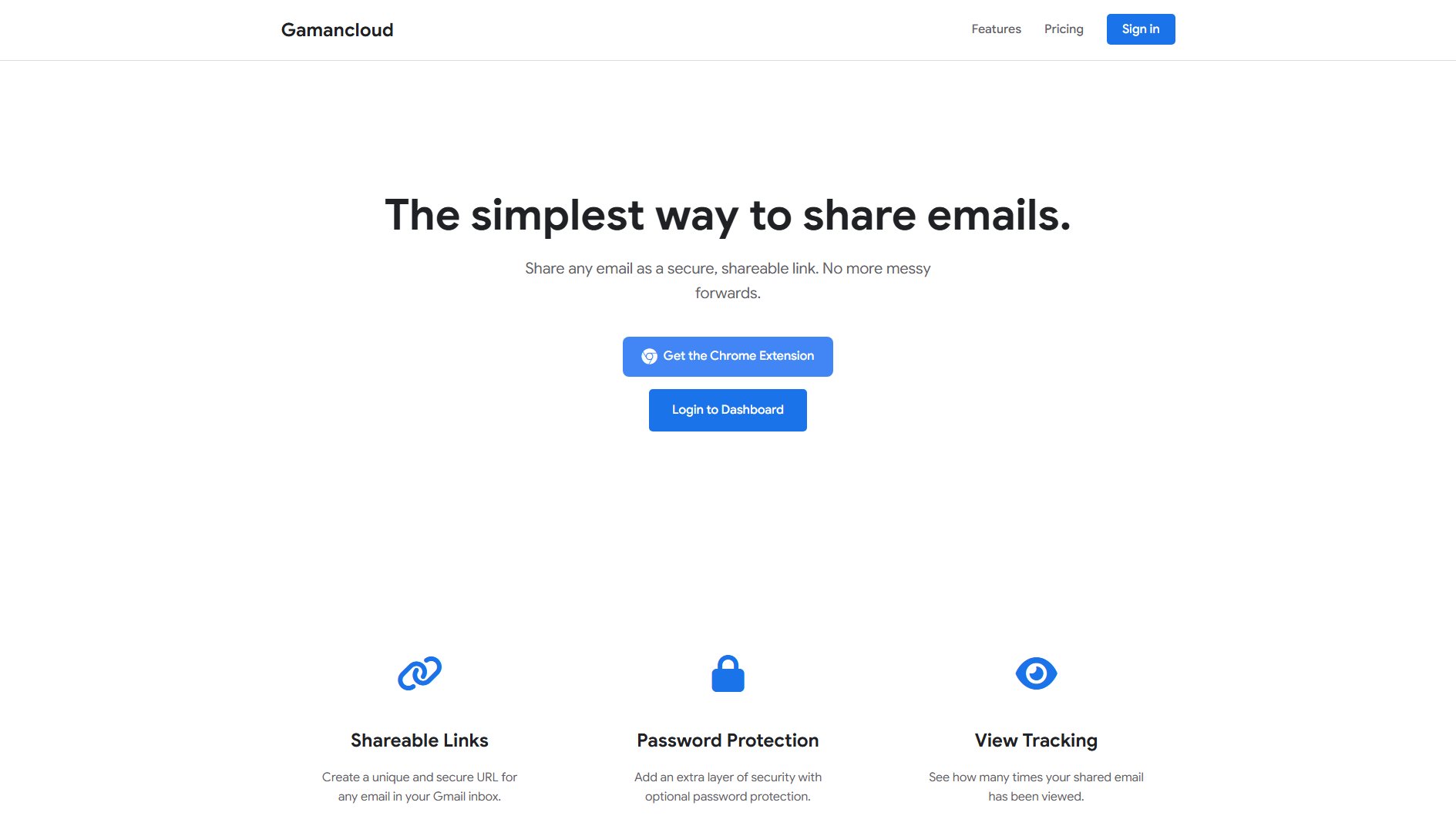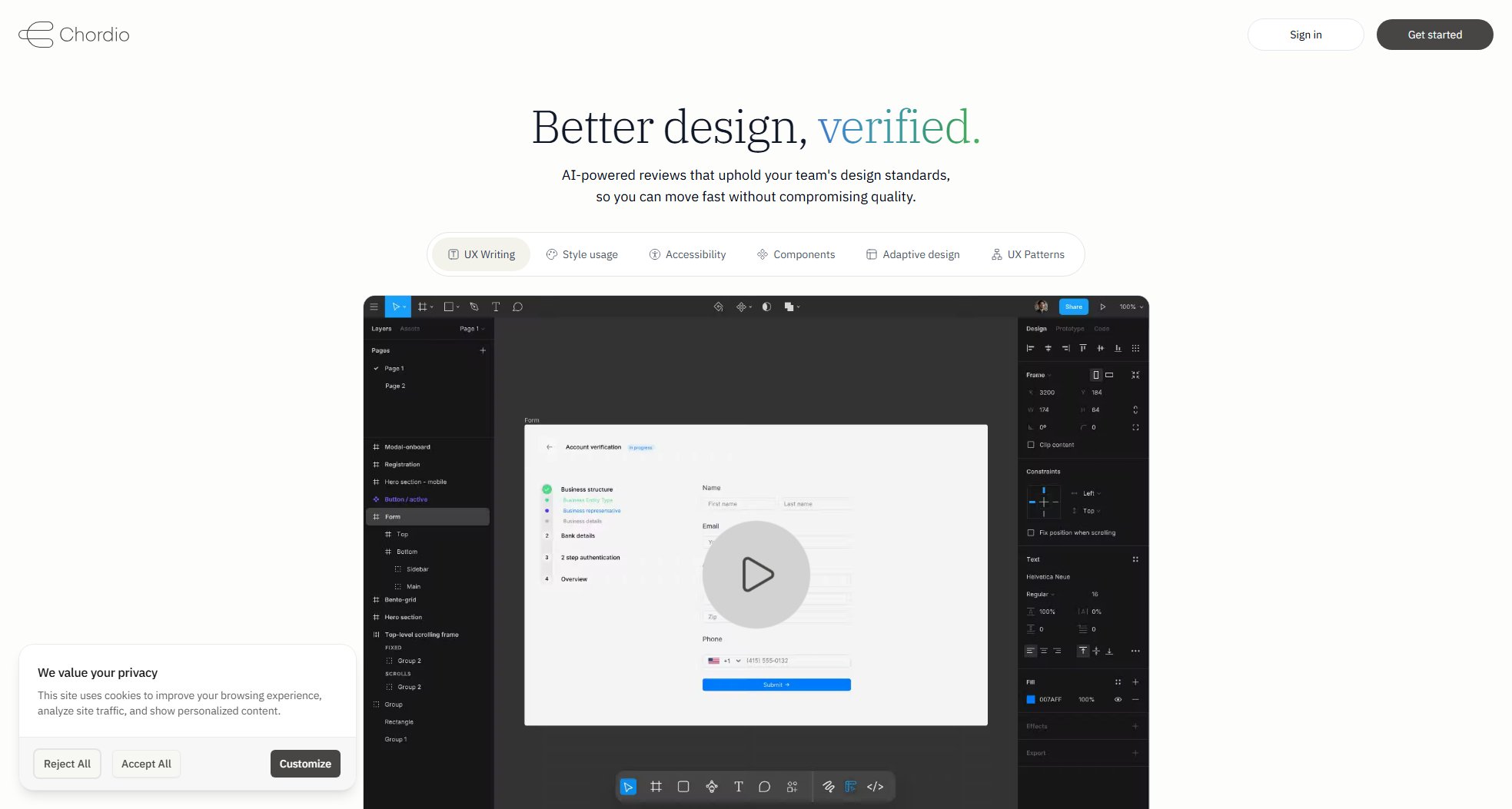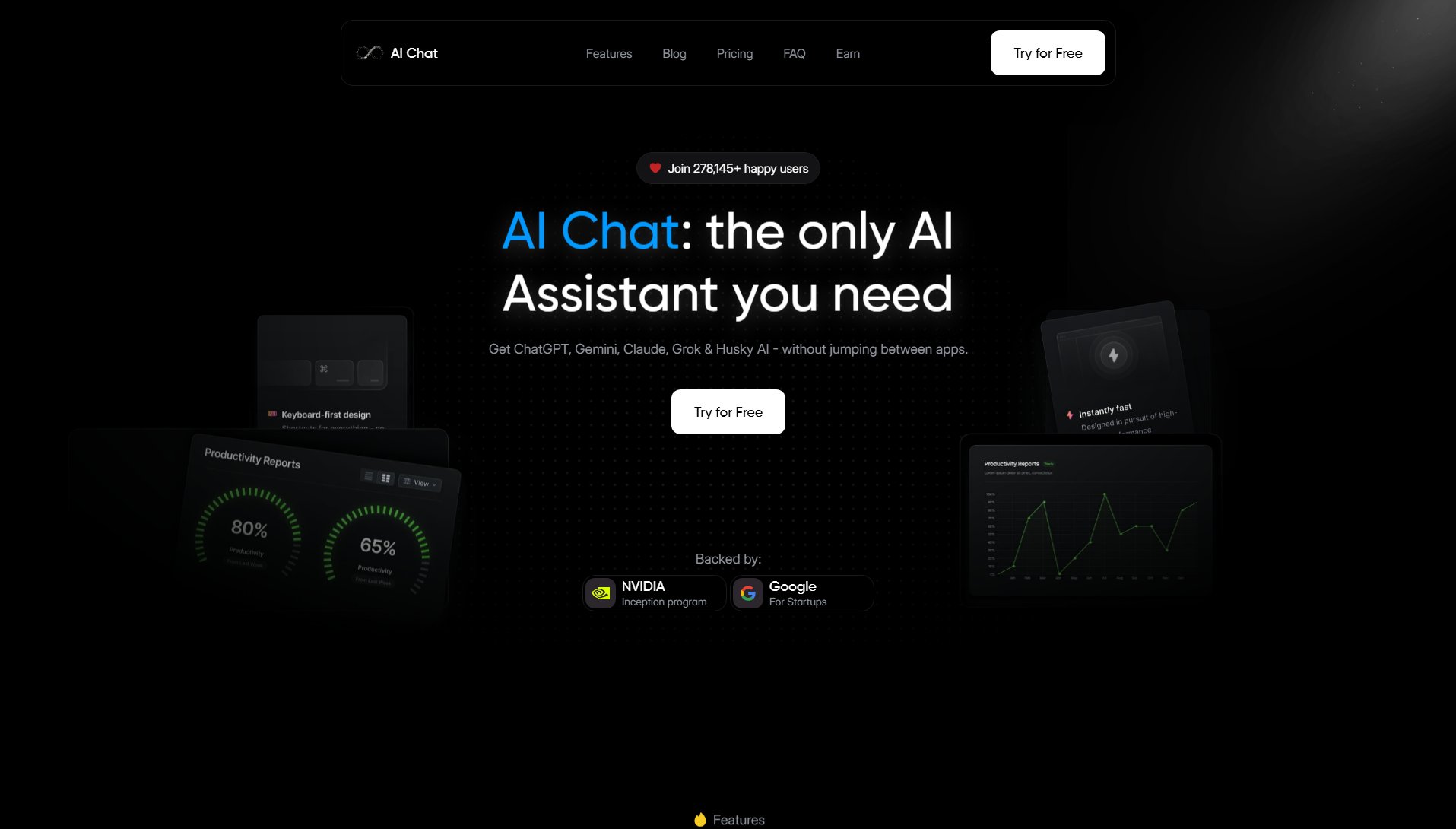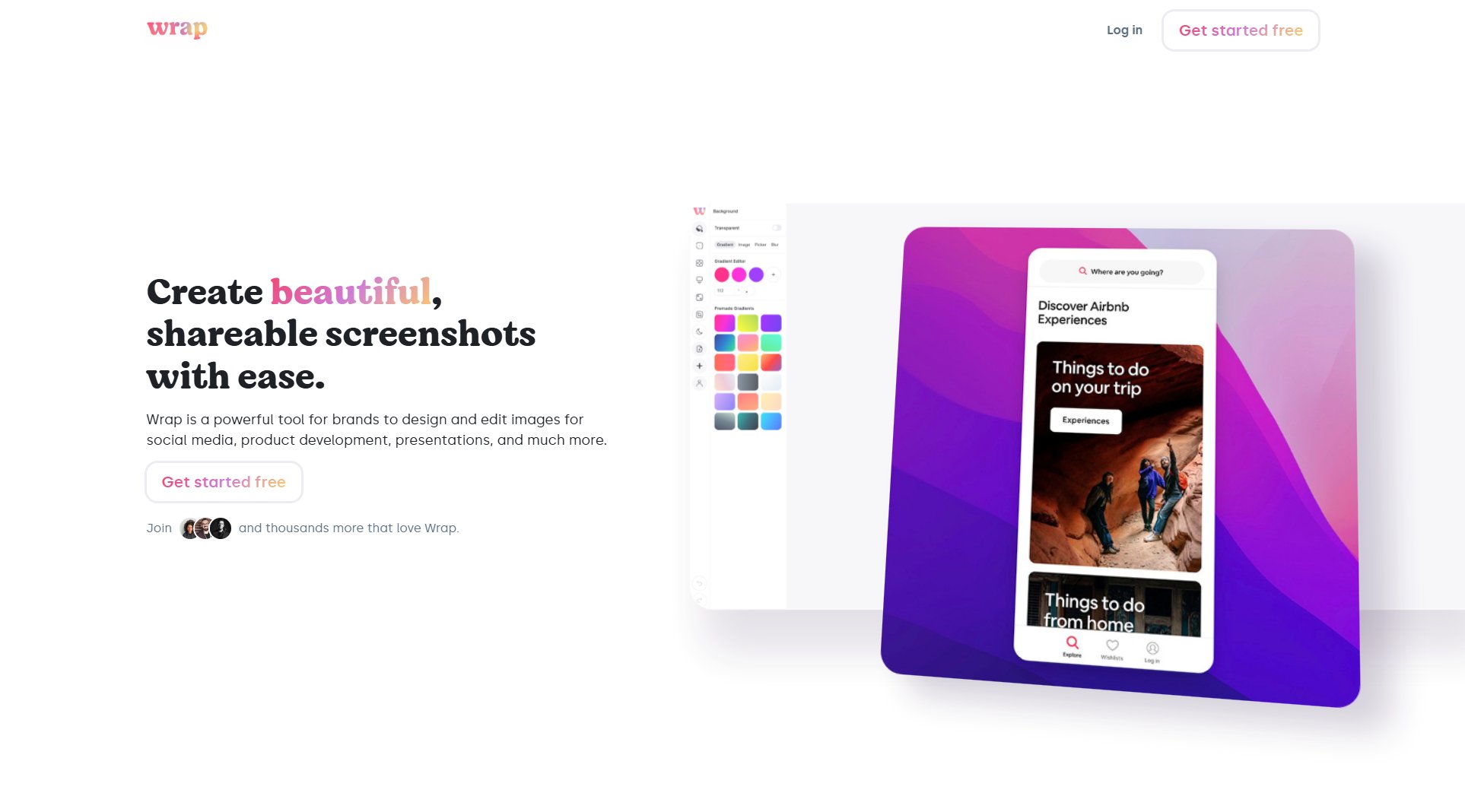Decision Mentor
AI-powered decision making compass for better choices
What is Decision Mentor? Complete Overview
Decision Mentor is an AI-powered decision making app designed to transform how individuals and organizations approach problem-solving and critical thinking. It serves as a decision support tool that helps users navigate complex choices with ease. The app is particularly valuable for those who don't have access to personal advisors or prefer to keep their decision-making process private. Using scientifically-backed methods like the Analytic Hierarchy Process (AHP), Decision Mentor visualizes decisions with prioritized criteria and options based on user inputs. The AI Mentor feature, powered by OpenAI's GPT-3.5 API, provides intelligent criteria suggestions and advice. With strong privacy protections (no cloud storage of private decisions) and various use cases across business, education, finance, and lifestyle, Decision Mentor empowers users to make better, more informed decisions.
Decision Mentor Interface & Screenshots
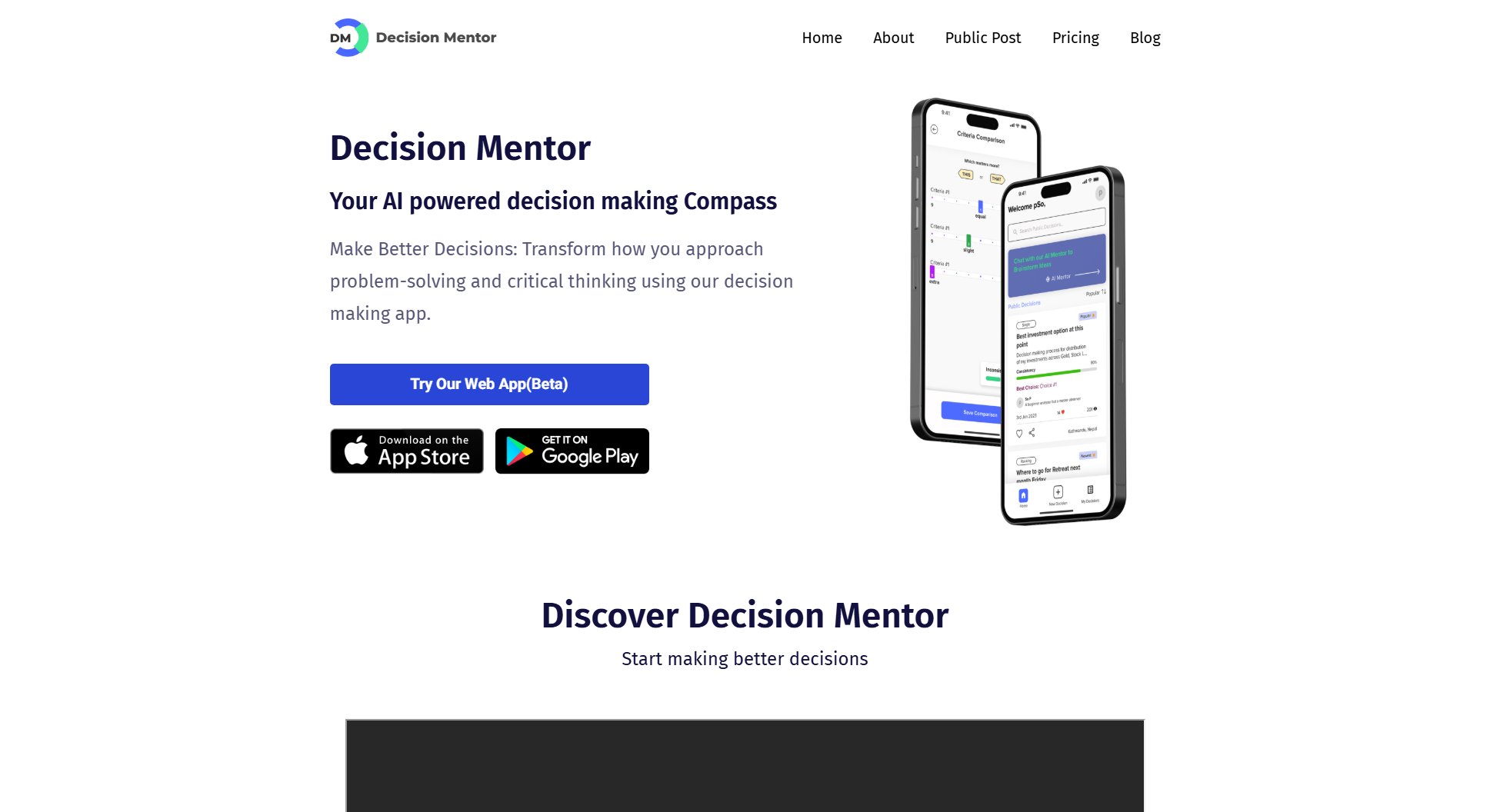
Decision Mentor Official screenshot of the tool interface
What Can Decision Mentor Do? Key Features
AI Mentor
Powered by OpenAI's GPT-3.5 API, the AI Mentor provides intelligent criteria suggestions and decision-making advice. It uses machine learning algorithms to analyze user inputs and offer relevant guidance, with daily chat limits varying by subscription plan.
Multiple Criteria Decision Making
Based on the Analytic Hierarchy Process (AHP) theory, the app helps users evaluate complex decisions by breaking them down into a hierarchy of criteria and alternatives, then synthesizing the results to determine the best option.
Decision Visualization
The app provides clear visual representations of decisions with prioritized criteria and options, making complex choices easier to understand and evaluate.
Mind Map Playground
Available in the Free plan, this feature allows users to visually map out their decision-making process, helping to organize thoughts and criteria effectively.
Public Decision Feed
Users can browse and duplicate decisions from a public feed of real-world examples across various categories like business, education, finance, and lifestyle.
PDF Generation
Available in Professional and higher plans, this feature allows users to export their decision analyses as PDF documents for sharing or record-keeping.
Multi-level Decision Making
Higher-tier plans support more complex decisions with multiple levels (up to 4 in Enterprise), enabling users to tackle sophisticated decision hierarchies.
Best Decision Mentor Use Cases & Applications
Career Decisions
Users can evaluate whether to pursue advanced education (like the BEd program example), choose between job offers, or decide on career transitions by weighing factors like salary, work-life balance, and growth opportunities.
Business Strategy
Small business owners can use Decision Mentor for choices like employee benefits (e.g., holiday bonuses vs. gift baskets) or comparing business models (restaurant vs. catering business), considering financial, operational, and market factors.
Financial Planning
Individuals receiving lump sums can analyze whether to save or invest the money, evaluating risk tolerance, time horizons, and financial goals through structured decision-making.
Consumer Purchases
The app helps with major purchase decisions like choosing between iPhone models (15 Pro vs. Pro Max) or kitchen appliances (microwave vs. oven), comparing features, prices, and usage patterns.
Personal Lifestyle
From simple choices ('What should I do tonight?') to complex ones (cleaning methods for household floors), users can apply structured decision-making to everyday life.
How to Use Decision Mentor: Step-by-Step Guide
Define your decision: Start by clearly stating the decision you need to make (e.g., 'Should I pursue a master's degree?'). The AI Mentor can help refine your question if needed.
Identify criteria: List the factors that matter in your decision (cost, time, career impact, etc.). The AI Mentor can suggest relevant criteria based on your decision type.
List options: Enter all possible choices you're considering (e.g., different degree programs, or 'yes/no' for binary decisions).
Prioritize criteria: Use the app's interface to rank how important each criterion is relative to others, creating a weighted decision framework.
Evaluate options: Score each option against your prioritized criteria. The app will synthesize this information to show which option best meets your needs.
Review results: Examine the app's recommendation and visualization. You can adjust criteria weights or option scores if needed, then save, share, or export your analysis.
Decision Mentor Pros and Cons: Honest Review
Pros
Considerations
Is Decision Mentor Worth It? FAQ & Reviews
Decision Mentor is an AI-powered decision making app that transforms problem-solving and critical thinking. It serves as both a decision support and analysis tool, helping users navigate complex choices with structured methodologies and AI assistance.
The app uses a criteria-based process where users identify options, prioritize evaluation criteria, and compare choices side-by-side. It visualizes decisions based on user inputs, applying scientific decision-making theories to recommend optimal choices.
The app is designed for individuals, teams, and organizations facing important decisions. It's particularly valuable for those without personal advisors or who prefer private decision-making processes across business, education, finance, and personal life domains.
Private decisions are not stored in the cloud and are visible only to the user. Public decisions (shared voluntarily) appear in the public feed. The Decision Mentor team cannot access private user decisions.
Decision Mentor uses Multiple Criteria Decision Making theory, specifically the Analytic Hierarchy Process (AHP) developed by Prof. Thomas L. Saaty. This scientifically-validated method breaks complex decisions into hierarchies for systematic evaluation.
The AI Mentor feature uses OpenAI's GPT-3.5 API for criteria suggestions and advice. Machine learning algorithms analyze user inputs to provide relevant, contextual guidance throughout the decision-making process.
